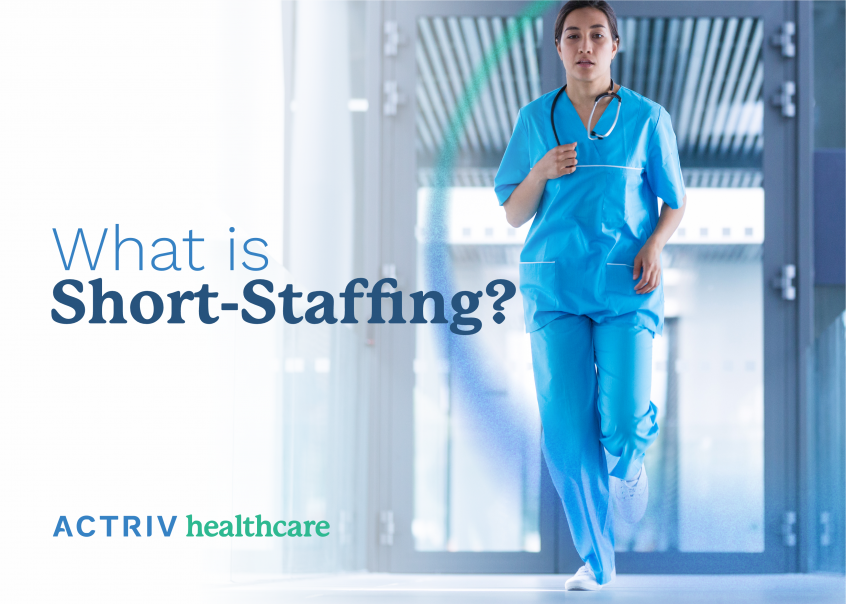Is your healthcare facility struggling with finding the correct number of staff to maintain patient care? You’re not alone. Because of the nursing shortage, many hospitals and other medical facilities find it challenging to maintain optimal staffing levels. In this blog post, we’ll define short staffing, explore the reasons behind the shortage, discuss the impact of short-staffed shifts on patients and nurses, and provide the answers you need.
What is Short Staffing?
Short staffing occurs when the number of patients in a hospital exceeds the capacity of the nursing staff to provide care while still meeting quality and safety standards. This nursing shortage often leads to hospitals and other medical facilities being understaffed. The reduced staff occurs because there are insufficient nurses to meet the demand. An estimated 1.5 million health care jobs were lost in the first two months of COVID-19 as the country raced to curb the novel coronavirus by temporarily closing clinics and restricting non-emergency services at U.S. hospitals. Though many of those jobs have since returned, health care employment remains below pre-pandemic levels, with the number of workers down by 1.1%, or 176,000, compared to February 2020, per the U.S. Bureau of Labor Statistics.
What Causes Short Staffing?
It’s not only a nursing shortage. Even when a location has an entire staff, the facility is short-staffed if they don’t have nurses to cover when one or more is out. The causes of this include an insufficient number of nurses available to work, high turnover rates, and an influx of patients.
However, the nursing shortage is a nationwide problem that the COVID-19 pandemic has exacerbated. The reasons for the nursing shortage include the following:
- An aging population of nurses: The average age of a registered nurse is 50 years old.
- A shortage of nursing faculty: There are not enough nursing instructors to prepare the next generation of nurses.
- The high cost of education: The cost of tuition, books, and other educational expenses can be a deterrent for some people who want to become nurses.
- The demands of the job: Nursing is a demanding profession, both physically and emotionally. The long hours and shift work can be challenging for some people.
Combined, these factors make it difficult for hospitals and other medical facilities to find and keep enough nurses to meet patient care demands.
What are the Effects of Short Staffing?
Patients and nurses can both suffer from short staffing. The quality of care may degrade if there are not enough nurses to care for all the patients. This may result in longer treatment wait times, more discomfort, and a higher chance of problems. Poor care can occasionally cause patients to pass away.
Short staffing also has an impact on Nurses. They may overwork themselves and experience stress, which might result in burnout. Overworked nurses are more susceptible to making mistakes. They can be in danger, as well as their patients.
What is the Solution to Short Staffing?
Actriv Healthcare provides each facility with the appropriate number of nurses. Whether you require nurses for a short-term project or a long-term placement, we will help you in finding qualified nurses to meet your staffing needs. We will collaborate with you when you partner with us and you can put your concerns about staffing shortages to rest and concentrate on giving your patients the best treatment possible.
Actriv Healthcare can assist in staffing all your shifts and making it easy to fill the last-minute shift openings. To begin, Contact us today.

